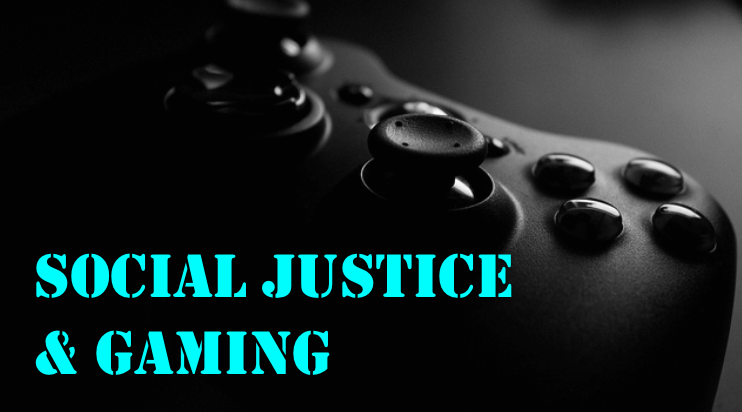Welcome to the first post in the Social Justice & Gaming Blog Carnival. The inspiration for this blog carnival sprang from a series of events that took place in 2012 when feminist bloggers Anita Saarkesian, Zoe Quinn, and Brianna Wu came under attack for their feminist critiques of video games, gaming culture, and representations of women in video games. This clash, later dubbed #GamerGate, ignited heated discussion about the ethics of representation in gaming and sexism in video game culture. These conversations are a good starting point for considering the social and analytical implications for gaming both within and beyond the classroom.
In their work on the pedagogy of play, Colby and Colby note that “games are productive in helping students apply, synthesize, and think critically about what they learn through active and social participation“ (2008). Building upon their work, this blog carnival seeks to join and extend the conversation surrounding gaming, social activism, and classroom practice, exploring the ways games can draw attention to the social construction of identity. Through “active and social participation,” contributors explore how gaming is used to critically examine these socially constructed categories, how it can inform classroom practice, and how it can encourage critical discourse in the classroom and beyond.
We are pleased to be sharing a wide range of contributions in the coming weeks. Scholars will explore issues of race, gender, and identity through The Sims, The Walking Dead video game, Twine, and even a Live Action Role Play game. The offerings include both digital and “unplugged” video games because of the inescapable overlap between digital and non-digital gaming worlds, exploring the grey area within this false dichotomy. Thus, you will read contributions that run the spectrum between digital and corporeal.
If you’d like to join us in conversation beyond the blog comments, you have two opportunities: On Wednesday, April 29th at 10am, we will be hosting a Google Hangout on Air with the coordinators of the Rhetoric, Politics, and Gaming series at The Ohio State University, and after that, we will host a #drcchat on Twitter, date and time to be announced.
For Further Reading:
Paul Gee James, R. Hayes Elisabeth. Women and Gaming: The Sims and 21st Century. Learning, Palgrave MacMillan, New York (2010).
Colby, Rebekah Shultz and Richard Colby. “A Pedagogy of Play: Integrating Computer Games into the Writing Classroom” Computers and Composition 25:3, 2008. 300-312.

